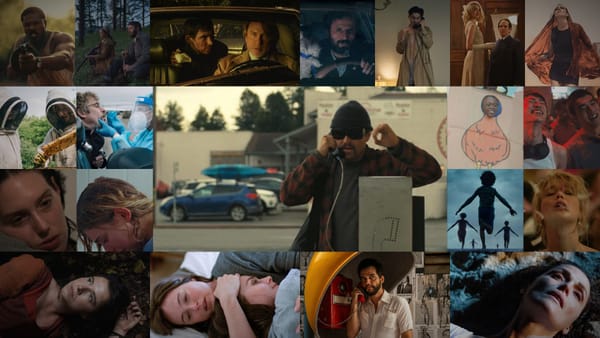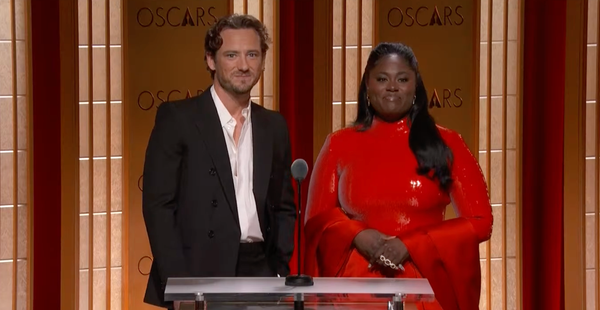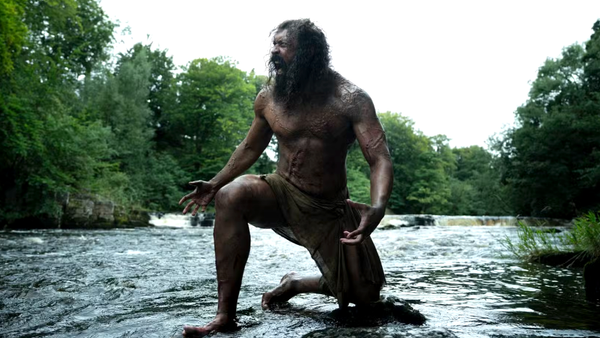I'm Sad That The World That Inspired Me To Get Into This Game Is Now Gone
A few thoughts on the death of [paid, institutional] criticism.

Criticism is dying.
When I say that, I don’t mean that there’s a dearth of people or places to read/watch people thoughtfully critiquing art. Rather, I’m talking about the old, legacy world of institutional criticism that many of us grew up consuming.
In the past few months, we’ve seen The New York Times reassign four respected critics to other beats, Vanity Fair lay off its chief film critic, The Associated Press sunset its book criticism section, and the Chicago Tribune eliminate its film critic role — the position once held by Gene Siskel. These used to be the jobs that a person like me would aspire to one day get, maybe in my wildest dreams. Now they barely exist anymore.
There are multiple cultural and economic forces at play here. The media business in general is in a state of decline, with many newspapers and publications struggling to get into the black as tech companies eat up a larger percentage of ad dollars. But I also think the people running many of these places realize that the concept of a critic paid a full-time salary to watch stuff and write about it in a newspaper or on a website doesn’t really make much sense in the current landscape. The overwhelmingly vast majority of people consume reviews and commentary on platforms that are not news websites — they’re on YouTube and Instagram and TikTok. Why should media companies continue investing in an idea that no longer has any cultural relevance?
[Side note: What makes things especially challenging is not just that the media industry is dying, but that the stuff that was supposed to replace it is also in a state of chaos. Twitter (now X) was acquired by a drug-addled right-wing billionaire and has been turned into a cesspool of Nazis and misogynists, while Substack (the platform I’m writing this on) continues to actively promote white supremacists. My days on this space, which I created to get away from the Nazis, are surely numbered. Stay tuned.]
At their best, critics can help us make sense of the work that we’re watching. Some of my fondest and formative memories of coming up in this world were the hours I spent glued to my computer and reading Roger Ebert’s reviews of various films. Ebert, like other great critics, knew how to dive deeper into works of art and unearth hidden meaning, all with prose that would make the original work even more compelling.
But even at their worst, critics can usually help you understand whether it’s worth spending two of your most valuable resources on watching something: your time and your money. There are billion dollar marketing machines (many of them) with thousands of people working all in service of getting you to pay to watch stuff. Given this, it’s useful to have someone whose job it is to say, “Hey, maybe not so fast.”
I know critics aren’t exactly the most aspirational figures, but in a world where media companies can’t pay people to be critics, something is lost. There’s something inherently valuable about having an independent voice, unbothered by financial or business considerations, try to evaluate a work of art. These days, I’m frequently reminded of what New York Times chief film critic A.O. Scott said when he left his film critic post after more than 20 years:
I’m not a fan of modern fandom. This isn’t only because I’ve been swarmed on Twitter by angry devotees of Marvel and DC and (more recently) “Top Gun: Maverick” and “Everything Everywhere All at Once.” It’s more that the behavior of these social media hordes represents an anti-democratic, anti-intellectual mind-set that is harmful to the cause of art and antithetical to the spirit of movies. Fan culture is rooted in conformity, obedience, group identity and mob behavior, and its rise mirrors and models the spread of intolerant, authoritarian, aggressive tendencies in our politics and our communal life.
Indeed, modern cultural commentary is less about interpreting art and more about making people feel good. So many people derive their sense of identity and purpose from the way they feel about the works they consume. If you don’t like the art, the rationale goes, you don’t like them. And therefore, the rationale continues, you probably shouldn’t be allowed to talk about art on the internet anymore.
So what’s left? How can someone make a living from criticism these days? Aside from the rapidly vanishing criticism jobs that remain, the only ways to really make a living in this game are to be funded directly by your audience (have I mentioned I have a Patreon?) or to get ad money/sponsorships — sometimes from the studios or companies creating the art itself. This inherently limits the types of people who can actually do this (e.g. those with large audiences, or audiences that can support them), as well as the type of critiques that can actually occur (e.g. if you’re sponsored by the latest Marvel film, it’s hard to offer an impartial review of it). I don’t begrudge anyone taking any reasonable measures to survive in this industry these days. The world we once knew is gone. New business models have to be created if this is to survive in any form.
But I also think people don’t really understand what we’re losing. Because in a world without impartial critics, all that would be left are the marketing machines and the mob.
Other Stuff David Chen Has Made
- On Decoding TV, Patrick Klepek and I discussed the latest episode of Alien: Earth, which was extremely entertaining, but perhaps not all that interesting.
- On The Filmcast, we reviewed Darren Aronofsky’s latest, Caught Stealing. Fun movie!
- [PAID ONLY] On my personal Patreon, my wife and I are continuing the series in which we talk about five viral videos from the week. Watch here.
- Over on the Decoding TV newsletter (subscribe for free!), Dan Gvozden has an interesting theory about what’s going on in Peacemaker this season.




